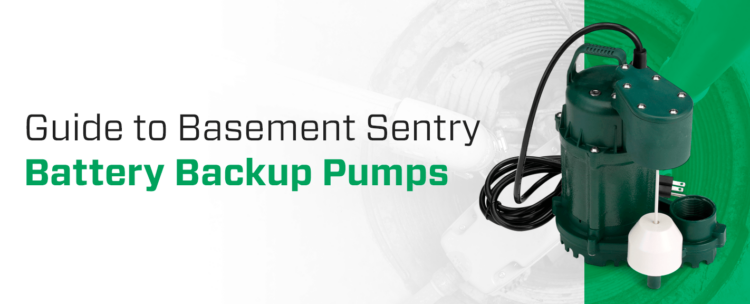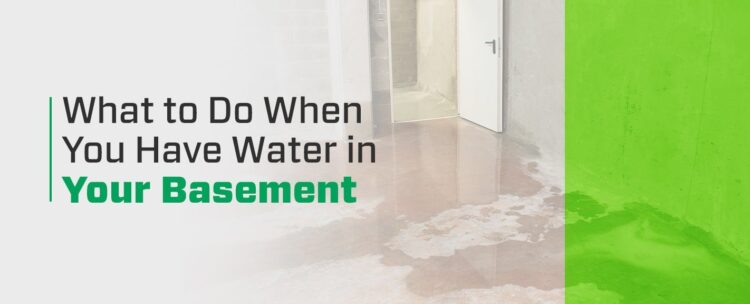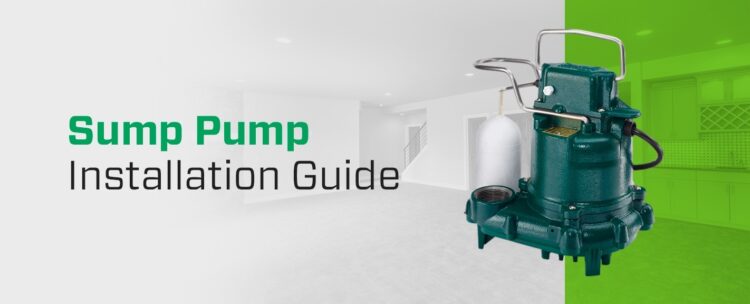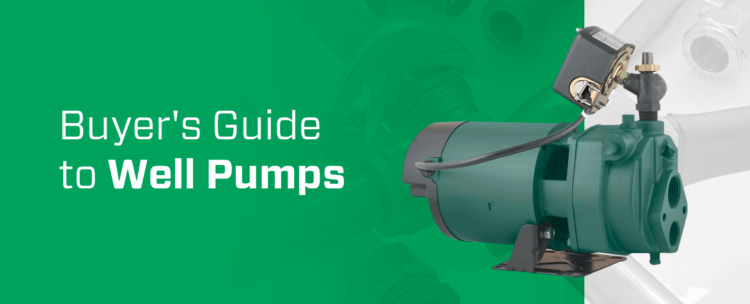
Residential utility pumps are a versatile tool for anyone who needs to transfer water from one place to another. For example, some homeowners who maintain their pools and land, have to occasionally deal with flooding. Utility pumps make these jobs easy, allowing you to move water safely and efficiently whenever needed — especially during emergencies.
With dozens of utility pump options and uses, understanding what they are and how they work will help you and your house stay dry. Use this guide to help you find the best utility pump for your residential needs.
What Is a Residential Utility Pump?
A residential utility pump is a special pump that helps with flooding and draining water. Many homeowners use their utility pumps for draining pools, dealing with a flooded basement or moving water to a different container. A utility pump is a great tool that significantly reduces the time and effort involved in transporting water, making it essential for many homeowners.
Utility pumps use suction and discharge ports, along with hoses, to help move water. They’re usually compact, letting you easily move them during an emergency. Utility pumps also offer manual and automatic modes, giving homeowners more control over their water management strategies.
Who Needs a Utility Pump?
Anyone who needs to move water regularly can benefit from a residential utility pump. Swimming pool owners will also need a sump pump to drain and refill their pools efficiently. Homeowners dealing with flooding can use utility pumps to help quickly remove water from their basements. Finally, landscapers and gardeners often use utility pumps for irrigating an area.
While utility pumps are beneficial for predictable use, they’re invaluable for emergency uses too. During emergency situations like plumbing issues or heavy rain, having a utility pump on hand is invaluable for preventing water damage.
What Types of Utility Pumps Are There?
Residential utility pumps come in different options, allowing you to have complete control over the pump. Different uses might mean you need a specialty pump or one with additional features. Picking the right kind of pump is essential if you want to get the job done correctly.

- Submersible: Submersible utility pumps are one of the most common types of utility pumps. They’re waterproof and designed to work underwater, allowing you to use them for water removal when submerged. Since they work underwater, they’re highly efficient at clearing out flooded basements or emptying pools.
- Portable: Portable or non-submersible utility pumps are the more flexible pump option. They will not work underwater, but you can use them above water for short-notice or adjustable tasks. Use them for water irrigation, construction site management or emergency water removal. Since they’re portable, these utility pumps are great for flexible and efficient water transfer work.
- Battery-powered: Battery-powered pumps are mobile. They’re convenient for situations where you have limited electrical outlet access. Battery-powered pumps have rechargeable batteries, so you can pick them up and use them wherever needed. You can find portable or submersible battery-powered pumps, depending on the task and power needs.
- Automatic sensor: Automatic utility pumps have sensors that let them turn on once the water reaches a certain height. These are handy if you’re trying to prevent flooding since they’ll turn on once the water gets too high instead of relying on you.
- Manual: Manual utility pumps are operated by hand, so they’re perfect for smaller jobs. Electric pumps offer a larger level of water pumping, but manual pumps are ideal if your power source fails and you need a pump in a pinch. Use manual pumps for draining small ponds, removing standing water or as a backup for your regular pumps. They’re extremely simple and easy to use, making them convenient for specific situations.
- Hybrid: Hybrid pumps combine the features of several different pump types, so you get maximum task flexibility and adaptability. Hybrid pumps will use multiple power sources, like electricity and a battery backup, to ensure operation even when one power source fails. This versatility makes hybrid pumps great for anyone who wants a comprehensive tool for their water management needs.
- Well: Well pumps are specialized utility pumps designed for extracting well water. These pumps have powerful motors that lift water up from inside the ground, bringing it up to you so you can use it on your home or farm.
- Bilge: Bilge pumps are essential for watercraft. They help remove water from inside the bilge so the boat floats correctly. Submersible bilge pumps are usually chosen for this job since they can work when underwater. Automatic bilge pumps will turn on when the water levels rise, giving you hands-free water transfer.
What Are Some Utility Pump Uses?
Utility pumps are extremely versatile — if you need to transfer water, utility pumps can help you out. With the right pump model, you can get the job done quickly and easily, reducing the time spent on pumping water.
Here are some utility pump applications you might need a pump for:
- Basement flooding: Utility pumps are critical for helping remove water after a basement flood. If you’ve got flooding due to heavy rains or plumbing problems, utility pumps will quickly remove excess water. With an efficient utility pump removing water, you’ll reduce water damage and protect your belongings. Submersible utility pumps are designed for this use — they can operate when submerged to ensure a thorough water extraction.
- Pool draining: Part of pool maintenance is draining and refilling the pool. Utility pumps offer pool owners an easy way to remove and refill their pools for winterization, routine cleaning or adjusting the water. Submersible pumps are also effective here, where they can sit in the water and efficiently drain your pool. Pumps come in different powers and sizes to handle any pool type, letting you perform pool maintenance without stress.

- Irrigation: Utility pumps are also essential for lawn and garden irrigation. Their ability to quickly transfer water helps ensure plants get the water they need to grow. You can use portable and submersible pumps to draw water from different sources as needed, making your setup more flexible. Gardeners and landscapers rely on these pumps to streamline their watering routines, promoting bright landscapes and healthy plants. With utility pumps, you can make your operation more efficient and productive.
- Fountain and pond maintenance: Fountains and ponds help elevate a space, but they need careful maintenance. Utility pumps make maintaining these areas easy. Whether you want to prevent overflow during heavy rain or keep consistent pond water circulation, you need a utility pump. Use submersible pumps to maintain water levels underwater, keeping your water feature looking sleek and untouched.
- Crawl space drainage: Crawl spaces often face water-related issues. Too much moisture in your crawl spaces will lead to mold and structural problems. With a utility pump, you can take a can of water seepage, manage condensation and prevent flooding. With a pump designed to operate in confined spaces, you’ll get effective water management.
- Washing machine drainage: If your washing machine setup is in a space without traditional plumbing, a utility pump can help protect your home. These pumps efficiently move wastewater from your washing machine to the drainage point for a safer space. With portable, adaptable utility pumps, you’ll prevent water accumulation while ensuring your laundry gets done.
- Boat bilge pumping: Bilge pumps are vital for removing water from your boat’s bilge. Getting a utility pump designed for bilge pumping will help your boat stay buoyant and safe on the water. Submersible bilge pumps work well underwater, letting you keep your craft afloat, dry and safe.
- Rainwater distribution: Rain barrels are an eco-friendly way to collect and store your water. However, you need a way to distribute this water after collection. Utility pumps can make this task much easier, helping you control your water transfer for different uses. Whether you’re cleaning outdoor spaces, watering plants or moving water to another area, these pumps are perfect for the job. Portable and submersible pumps give you the flexibility you need to transfer your rainwater without losing any.
- Sump pump backup: You can also use your utility pump as a sump pump backup. Sump pumps might fail during heavy rains or high-water table conditions. Without a sump pump backup, water will flood in, damaging your home. Having a utility pump as a backup helps protect you from flooding, ensuring water gets removed even if the sump pump fails during an emergency.
- Water management: Home renovation sites may need utility pumps for water management. Rain and groundwater seepage can pose problems for productivity if left unaddressed. Utility pumps help improve site water management, efficiently moving water away from work areas around the property. With the right pump, you can prevent site flooding while keeping everyone safe.

How to Choose a Utility Pump
Choosing the right utility pump is essential for safe, effective water transfer. You want to get the most out of your investment — making sure it can protect your home and perform correctly is vital. You’ll need to consider several factors to make sure you get the best utility pump for the job:
- Use: The utility pump you get depends on what you’re using it for. If you’re dealing with basement floods or pool draining, consider a submersible pump since they can work underwater. If you need a pump for general water transfer tasks, you might want a portable or non-submersible pump. The right pump will help you get the job done, so talk to your utility pump expert if you need help picking your pump model.
- Capacity: Each utility pump has a different capacity — gallons per minute or gallons per hour. Figure out the flow rate you need and get the pump that fits that need. You want your pump to be able to handle the tasks you need it for. Consult with your utility pump expert for help with your flow rate and utility pump needs.
- Head height: Utility pumps also have different head heights or lift capabilities. This information tells you how high the pump can move water. This is essential if you plan to move water through an extended hose or pump it uphill — the right head height lets you get the best performance.
- Power source: You’ll want to check your pump’s power source. Most utility pumps are electrically powered, but they come with different voltages. Get the voltage that matches your outlets for the safest use. If you choose a manual or battery-powered pump, make sure it works with your intended use.
- Pump size: Utility pumps come in different sizes and weights. The lighter and more compact your pump, the easier it is to move. However, smaller models are usually less powerful. Match your pump size and power with your needs for the most efficient results.
- Additional features: You might also want to look at different features for your utility pump. Some utility pumps come with additional features like float switches, on/off switches and adjustable speed settings to make them more convenient to use. Having an automatic pump with a float switch is especially helpful for handling basement flooding since it activates when water levels rise.
- Maintenance: If you can, pick a low-maintenance pump. Models with easy-to-clean filters and accessible components will help you stay on top of maintenance for a longer-lasting utility pump.
- Cost: Cost will likely be a part of your decision. Work with your budget, but make sure you get a utility pump that will work with your needs to avoid spending money on an ineffective model.
Explore Water Management Solutions With Zoeller at Home

If you’re looking for reliable, effective water management solutions for your home or business, trust the experts at Zoeller at Home. As one of the oldest pump manufacturers in the United States, you can count on our products to deliver unparalleled results.
Our range of products is stocked with top-notch offerings designed for efficiency and durability. If you need a home utility pump, our submersible automatic sensor utility pump is ideal for pool draining, basement flooding and maintaining home aquariums. Choose Zoeller at Home for effective home water moving solutions.
With rigorous testing and a focus on customer satisfaction, we ensure our utility pumps will exceed your expectations. Whatever your home pump needs, we’ve got the product to help. Our pumps are tried-and-true products designed to make your life easier. With the right pump, your home will stay dry all year long.
Find a Zoeller at Home seller near you and upgrade your home water management systems today!



